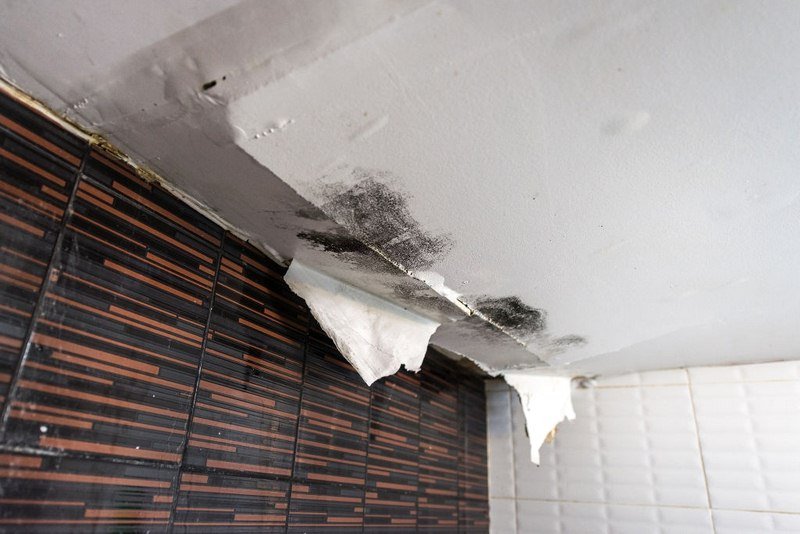The Residential Principal Frequent Triggers of Leakage: In-Depth Analysis
The Residential Principal Frequent Triggers of Leakage: In-Depth Analysis
Blog Article
How do you actually feel on the subject of How to detect water leaks in your home?

Leakages not just create waste of water but can likewise trigger unnecessary damage to your residence and advertise undesirable organic growth. By looking and comprehending for daily situations that create leaks, you can secure your residence from future leakages and unneeded damages.
Encroaching roots
A lot of water leakages begin outside your house rather than inside it. If you see a sudden decline in water pressure, say in your tap, take time to head out and also analyze your backyard. You could notice damp patches or sinkholes in your lawn, which may suggest that tree roots are getting into water lines triggering water to permeate out. You can have your plumber check for breach, specifically if you have trees or bushes near your residential or commercial property.
Rusty water systems
This could be the cause of discoloration or bending on your water pipes. If our plumbing system is old, consider changing the pipelines since they are at a greater threat of rust than the newer designs.
Faulty Pipeline Joints
The factor at which your pipes attach is frequently the weakest web link in the waterline. Pipeline joints can weaken with time, causing water leaks. Sadly, most of pipeline joints are not quickly noticeable. If you have loud pipelines that make ticking or banging sounds, specifically when the hot water is switched on, your pipe joints are possibly under a lot of pressure. It is recommended to have your plumber examine your system once a year.
Immediate temperature level modifications.
Severe temperature level changes in our pipes can cause them to increase and get suddenly. This growth as well as contraction might cause cracks in the pipes, specifically if the temperature are below cold.
Poor Water Connectors
At times, a leak can be caused by loosened pipes and also pipes that provide your appliances. Usually, changing is what triggers the loosened water Connections. You might locate in the case of a cleaning maker, a tube may spring a leak as a result of trembling during the spin cycle. In case of a water links leakage, you may notice water running straight from the supply line or pools around your home appliances.
Blocked Drains
Clogged drains pipes may be bothersome and inconveniencing, but they can occasionally end up triggering an overflow leading to rupture pipelines. Maintain getting rid of any type of materials that may drop your drains pipes that can block them to prevent such inconveniences.
All the above are causes of leakages however not all water leakages arise from plumbing leaks; some leakages may come from roofing system leaks. All leaks must be repaired quickly to stay clear of water damages.
Leaks not just trigger waste of water yet can also trigger unnecessary damage to your residence and also advertise unwanted organic development. By looking as well as comprehending for daily situations that create leakages, you can shield your home from future leakages and also unneeded damages. Today, we will look at six leakage causes that might be causing your pipes to leak.
At times, a leakage can be caused by loosened hose pipes as well as pipes that supply your devices. In instance of a water connections leak, you might discover water running straight from the supply line or pools around your home appliances.
How To Check For Water Leak In Your Home
How To Check for Leaks
The average household's leaks can account for nearly 10,000 gallons of water wasted every year and ten percent of homes have leaks that waste 90 gallons or more per day. Common types of leaks found in the home are worn toilet flappers, dripping faucets, and other leaking valves. These types of leaks are often easy to fix, requiring only a few tools and hardware that can pay for themselves in water savings. Fixing easily corrected household water leaks can save homeowners about 10 percent on their water bills.
To check for leaks in your home, you first need to determine whether you're wasting water and then identify the source of the leak. Here are some tips for finding leaks:
Take a look at your water usage during a colder month, such as January or February. If a family of four exceeds 12,000 gallons per month, there are serious leaks.
Check your water meter before and after a two-hour period when no water is being used. If the meter changes at all, you probably have a leak.
Identify toilet leaks by placing a drop of food coloring in the toilet tank. If any color shows up in the bowl after 10 minutes, you have a leak. (Be sure to flush immediately after the experiment to avoid staining the tank.)
Examine faucet gaskets and pipe fittings for any water on the outside of the pipe to check for surface leaks.
Undetected water leaks can happen without the home or business owner even realizing. If you suspect a water leak, but not able to find the source. It is time to contact a professional water leak detection service, The Leak Doctor.
How To Find a Water Leak In Your Home
https://www.leakdoctor.com/blog/How-To-Check-For-Water-Leak-In-Your-Home_AE197.html

I ran across that piece of writing on How Fast Water Damage Can Ruin Your Home when doing research the search engines. Sharing is good. Helping others is fun. Thanks a bunch for your time. Please check our website back soon.
Today's problem, today's fix! Report this page